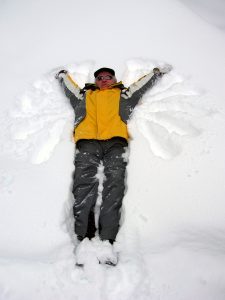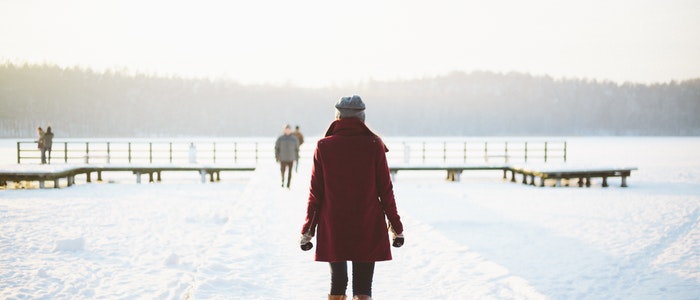
In emergency situations, there can never be enough options for survival. Some situations may not call for such dire methods, but in the event that survival becomes a challenge it’s important to know how to help yourself. Take the possibility of a winter emergency, for example. You’ll most likely find yourself wondering: does eating snow dehydrate you?
You’re not alone in your inquiry. Many people just like yourself would have the same reflex to eat snow to quench thirst if no other water source was available during a cold weather emergency.
The reality is that while eating snow during a winter emergency won’t directly dehydrate you, it is not the safest choice that you can make.
Why is it Bad to Eat Snow?
Everything you’ve learned has taught you that snow is simply a form of frozen water. So why isn’t it a safe option to eat during a winter emergency? The problem is the way your body will need to work if you eat snow during a winter emergency.
Think about it. If you are in the position where snow is the only source of hydration, then you most likely do not have electricity, and your body is likely very cold already.
When you eat snow, your body must expend a lot of energy to melt the frozen material you’ve ingested. In a cold weather situation where warming yourself is not easy, this could be dangerous because your body’s core temperature will decrease. In turn, your body will raise its metabolic rate to keep you warm, but will not be gaining what it needs to stay safely hydrated.
Is Melted Snow Safe to Drink?
Now that you understand why eating snow in its original form during a winter emergency is not the best option, it’s time to consider the possibility of melting the snow before ingesting it. If you melt the snow, then your body will not have to expend so much energy, right?
That’s true, which is why, if you have absolutely no other water source except for snow, then the first thing you want to do before ingesting it is melt it. If you have no way of melting snow, try to keep it in your mouth to warm it down a bit before ingesting it.
But when snow is your one source of hydration, then do all you can to focus your energy on melting it before you ingest it. Melting snow will make it safer to drink. At the very least, you will not risk hypothermia by ingesting frozen liquid.
Just because snow is melted, however, does not automatically make it safe in all ways. Consider this simple fact: some snow is cleaner than other snow. It’s the same as water. Would you drink from a dirty rain puddle? The same principle applies to the snow you melt to drink. You want to do your best to find clean snow that has been isolated from dirt and waste, as much as possible.
You’ll be better equipped if you have added a portable water filter to your emergency collection. Then you will be able to drink from melted snow without worrying too much about getting sick from any possible germs.
How to Melt Snow for Water
It’ll be time to practice your fire making skills or break out your portable water heater when you need to melt snow. The thing to remember is that you want to try to collect the cleanest snow possible to reduce your risk of contracting germs.
Though we often assume that snow is just frozen water, it is actually made up of a decent amount of air, as well. You will need to collect a large amount of snow to melt into water for drinking.
Once you have collected your snow, add it into a pan of some sort over heat, and begin the melting process. It will work best if you add a handful of snow at a time, allowing each bit to melt before adding more.
If you’ve noticed that your snow was especially dirty, the best thing to do is to boil the snow-water for at least 10 minutes before drinking it.
Final Thoughts
Will eating snow dehydrate you? Not exactly, but you definitely want to melt snow before ingesting it. Although it can be frightening to imagine yourself in a winter emergency, knowing how to melt and filter snow properly will ensure that you stay hydrated even in a difficult situation.

